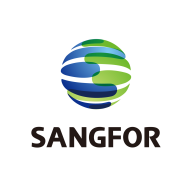


Netgate pfSense and Sangfor NGAF compete in the firewall market. Sangfor NGAF seems to have the upper hand due to its powerful application control and integration capabilities.
Features: Netgate pfSense is notable for its open-source nature, extensive customization options, and affordability, offering VPN, routing, and firewall functionalities. Sangfor NGAF is recognized for its powerful application control, SSL VPN, and deep packet inspection, with strong integration capabilities.
Room for Improvement: Users of Netgate pfSense desire improvements in the user interface, integration with other solutions, and centralized management, along with better SD-WAN integration. Sangfor NGAF could improve its user interface, enhance SD-WAN support, and refine application control policies, with users wanting more detailed logging and real-time reporting improvements.
Ease of Deployment and Customer Service: Netgate pfSense offers versatile deployment options across various cloud environments and benefits from community support, though some users seek more structured support. Sangfor NGAF provides a smoother hybrid cloud deployment experience, but documentation and support structure need enhancement, benefitting from its centralized orchestration.
Pricing and ROI: Netgate pfSense is cost-effective, especially with its free community edition, but transition to pfSense Plus received mixed feedback. Sangfor NGAF is affordable compared to brands like Fortinet and Cisco, though concerns exist over potential price increases. It offers substantial ROI with its comprehensive features at a competitive price.



Fortinet FortiGate offers comprehensive network security and firewall protection across multiple locations. It effectively manages data traffic and secures environments with features like VPN, intrusion prevention, and UTM controls.
Organizations rely on Fortinet FortiGate for its robust integration with advanced security policies, ensuring significant protection for enterprises, cloud environments, and educational sectors. It facilitates network segmentation, application-level security, and authentication management, securing communication within and between locations such as branches and data centers. Its efficient SD-WAN and UTM features enable streamlined data management and enhanced threat protection capabilities. Users appreciate its centralized management, facilitating seamless operations across diverse environments.
What are the key features of Fortinet FortiGate?
What benefits should users expect from Fortinet FortiGate?
Fortinet FortiGate is crucial in sectors like education, offering robust networks for secure data flow between campuses and facilitating remote learning. In enterprise environments, it allows efficient management of application traffic and security across multiple branches, while in the cloud, it seamlessly integrates with diverse platforms to enhance security infrastructure.
Netgate pfSense is widely leveraged by organizations for its comprehensive capabilities in firewalls, VPN servers, and bandwidth management. It suits LAN, WAN, and DMZ networks, offering secure, scalable, and efficient networking solutions.
Netgate pfSense stands out in diverse environments with its enterprise-grade features and cost-effective operations compared to competitors like Cisco. Deployed as an edge device, it optimizes routing, ad-blocking, content filtering, and traffic shaping. Users benefit from its versatile configurations, robust firewall protection, VPN functionality, and ISP load balancing. The open-source nature allows for extensive customization, integrating plugins like Snort and pfBlockerNG, and compatibility with third-party tools enhances its utility. The intuitive GUI combined with detailed logging and centralized management fortifies network security.
What features define Netgate pfSense?
What benefits should be considered for ROI?
Organizations in industries such as finance, healthcare, and education find Netgate pfSense integral due to its advanced security features and cost benefits. Its scalable architecture and strong VPN support are crucial for industries requiring stringent data protection and reliable remote access. The adaptability of pfSense makes it suitable for dynamic environments seeking comprehensive, secure networking solutions.
Sangfor Next Generation Firewall (also known as NGAF) is a converged security solution providing protection against advanced threat, malware, viruses, ransomware and web-based attacks using integrated security features like firewall, IPS, anti-virus, anti-malware, APT, URL filtering, Cloud Sandbox, and WAF. As the world's first AI-enabled and fully integrated Next Generation Firewall & Web Application Firewall (WAF), NGAF offering the security visibility, real-time detection and response, simplified operation and maintenance and high-performance application layer security needed to operate an enterprise network in total security. Tested and proven to provide cutting-edge network security by ICSA Labs and endorsed by Gartner Inc., NGAF harnesses the power of Sangfor’s Neural-X threat intelligence and analytics platform and Engine Zero’s innovative malware detection to provide next-generation protection for today’s enterprise.
We monitor all Firewalls reviews to prevent fraudulent reviews and keep review quality high. We do not post reviews by company employees or direct competitors. We validate each review for authenticity via cross-reference with LinkedIn, and personal follow-up with the reviewer when necessary.